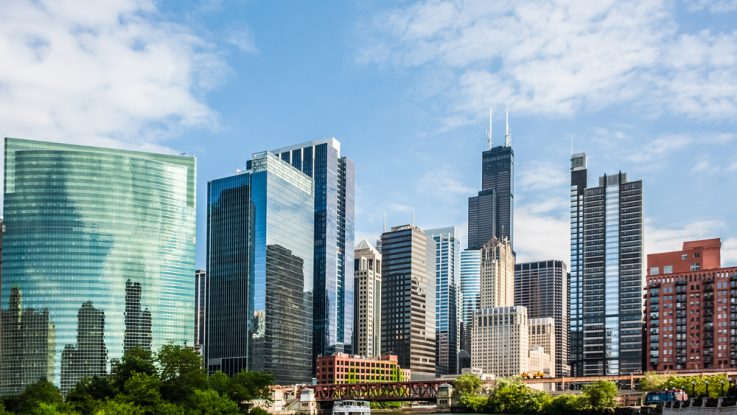
Green Era Campus – an initiative dedicated to creating sustainable communities through innovative urban development practices – has officially launched in Chicago’s South Side. Green Era is committed to creating more sustainable communities by supporting local food production through improved management of biodegradable waste and nutrient-rich fertilizer for agriculture and food production.
Working with multiple partners, the Green Era Campus is transforming nine acres of former brownfield in the Auburn Gresham neighborhood into a hub for green energy, jobs, fresh produce, small business incubation, educational programming and community green space. Some of the partners include: Urban Growers Collective, a black-woman-led organization that uses urban agriculture to address inequity and structural racism; Green Era Educational NFP, the land owner and site developer; and Green Era Sustainability, an organization that recycles food waste by converting it to renewable natural gas and fertilizer for urban farming.
“This is true change: a facility that can grow food, create energy and provide education and inspiration to young people and folks returning from incarceration—all happening within a community that represents the challenges we’ve been up against for the last 130 years; and we send an abundance of heartfelt gratitude to the organizations, community members and officials that helped make Green Era Campus a reality,” said Erika Allen, CEO for Urban Growers Collective, the president of Green ERA Educational NFP and co-owner of Green Era Sustainability Partners.
Key features of The Green Era Campus includes:
- a renewable energy facility – using an anaerobic digester, the campus will generate clean energy from organic waste, reducing greenhouse gas emissions and promoting renewable energy adoption;
- urban farming initiatives – the Campus will host urban farming initiatives aimed at promoting local food production and enhancing food security in the surrounding communities. It plans to grow more than 125 varieties of produce per year, train young farmers, support new food businesses and entrepreneurs and, ultimately, build financial security and collective power for historically underserved communities;
- a retail store and plant nursery – to increase food accessibility for more than 2,000 people per year in the neighborhood; and
- community engagement spaces – designed to facilitate collaboration, education and cultural exchange.
“We invite the community to join us in celebrating the launch of Green Era Campus and the possibilities it brings for a more sustainable and equitable future,” said Jason Feldman, co-founder and CEO of Green Era Sustainability.